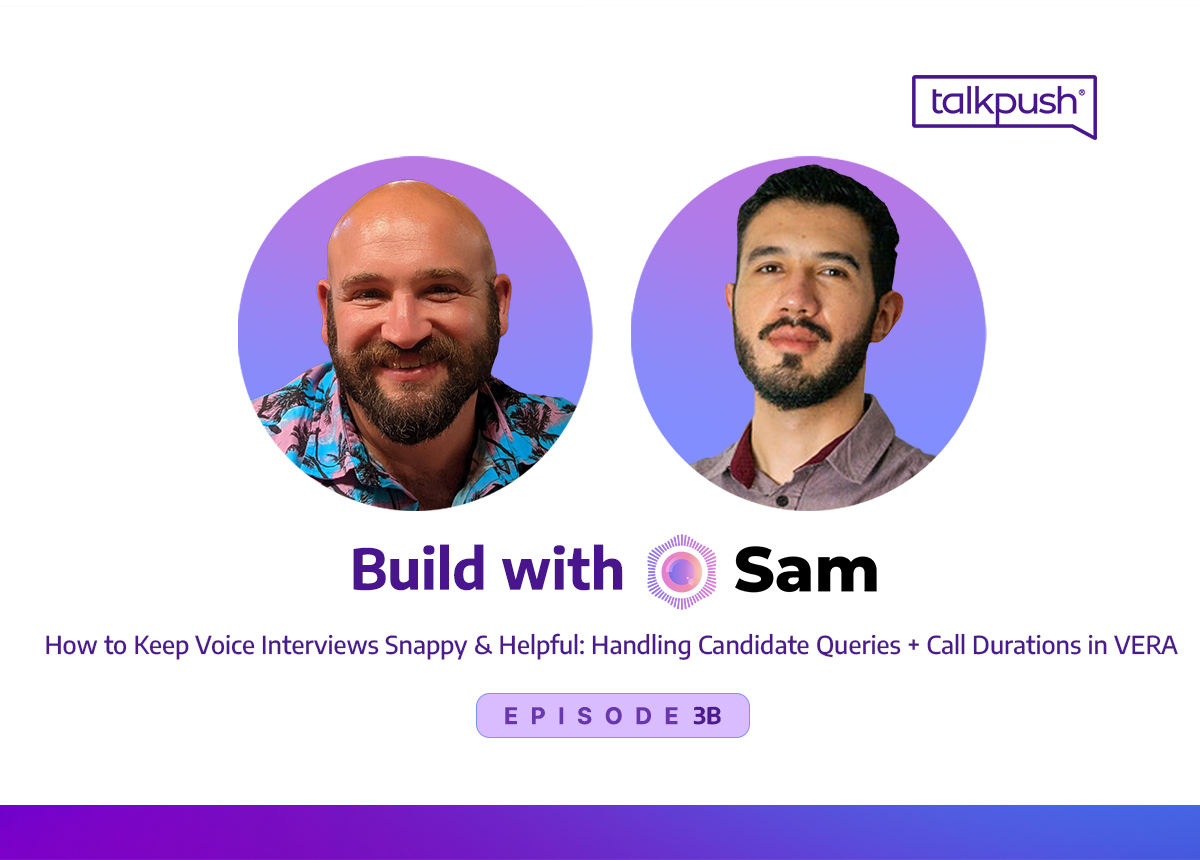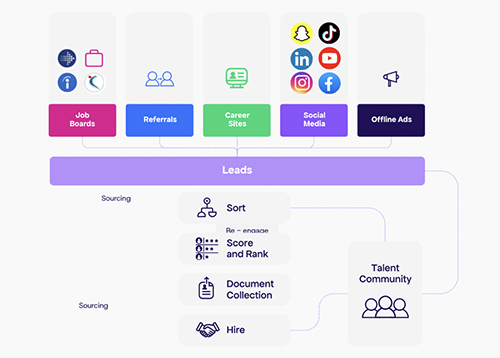Check out our new case study!
The Recruitment Automation Blog
Build with Sam: Insights from the
VERA Podcast Series
Explore the latest conversations from the Build with Sam podcast series, where we break down the future of voice AI in recruitment. Learn from industry experts as they discuss how the VERA framework is transforming hiring processes, improving candidate engagement, and making recruitment smarter.
Stay updated with each episode’s key takeaways, best practices, and real-world applications of voice AI in hiring.
Thank you! Your submission has been received!
Oops! Something went wrong while submitting the form.
Get the latest in hiring automation
Subscribe to receive directly in your inbox




















































